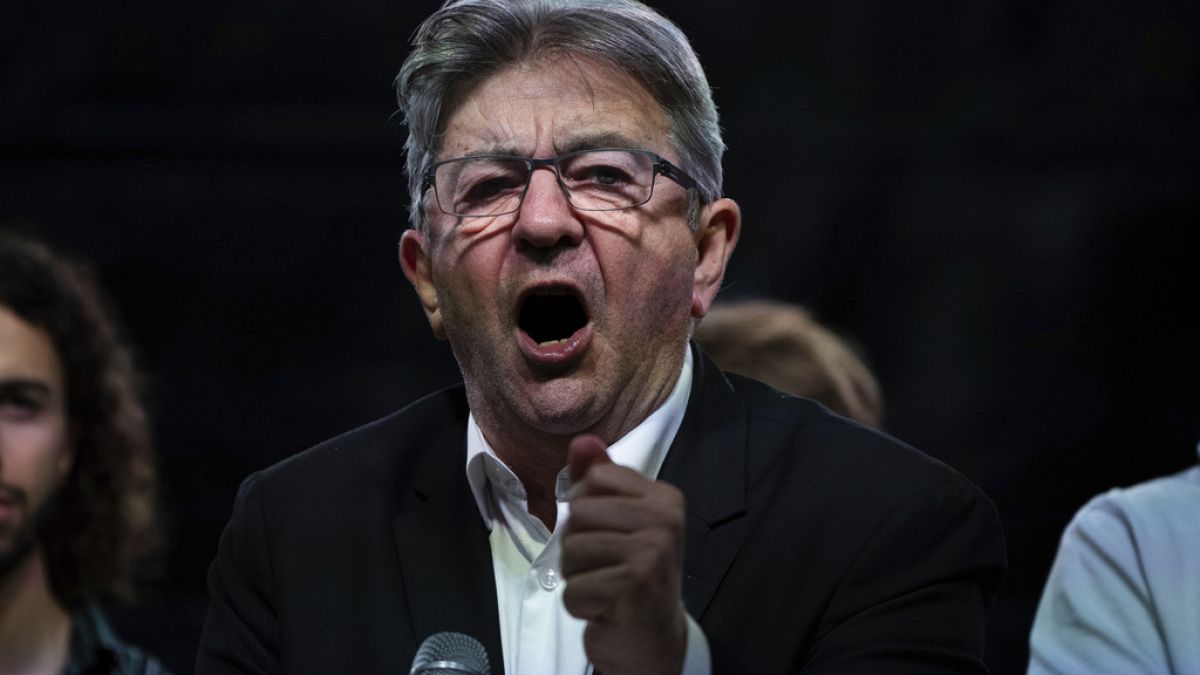Withdrawals and tactical voting suggest there’s still a lot to play for in the second round of France's legislative elections next Sunday.
One in three French voters have backed Marine Le Pen’s far-right National Rally in the first round of a snap election called by President Emmanuel Macron.
But the show isn’t over, given the unique electoral system that governs the selection of France’s National Assembly.
The vote was called after a disastrous showing by Macron’s liberal coalition in the European Parliament election three weeks ago – and does little to turn the tide for the beleaguered President.
By promptly dissolving France’s lower parliamentary chamber once EU results were known, Macron effectively challenged citizens to decide if they’re prepared to be governed by a nationalist party that now sends a whopping 30 MEPs to Brussels.
The answer appears to be yes. With new allies from the divided Republicans – also trounced in the EU election – the party formerly known as the National Front has actually increased its share of the vote by nearly two percentage points to 33.1%.
France is one of only two countries in Europe that doesn’t use proportional representation for its parliamentary elections; the other is the UK.
But the two systems aren’t exactly alike. France still has a second round of voting, due on 7 July, and, with 577 seats up for grabs, there’s still a lot to play for.
Britain, in stark contrast to their allies across the Channel, is expected to elect a centre-left Labour government on Thursday (4 July) under its constituency-based first-past-the-post system.
But in France, candidates can’t win a constituency in the first round unless they get an outright majority backed by at least 25% of registered voters.
Historically only a handful have managed this – just five in 2022, four of them with Jean-Luc Mélenchon’s leftist party France Unbowed (LFI). It is a mark of the seismic shift going on in French politics that this time around the National Rally has won 39 seats outright.
The bulk of those first-round victories are in the northernmost corner of France, but there is also a significant cluster in the south-east, which despite the glamorous reputation of the Côte d'Azur is home to some of the country’s most precarious communities.
The New Popular Front – an alliance built around Mélenchon’s LFI that placed second with 28% of the national vote – took 32 seats of its own in the first round, mostly constituencies in and around Paris.
Although the Le Pen result grabbed most of the headlines, first-round voting actually saw the centre turning both left and right.
So where does this leave France, with just six days to go before the second round of voting?
The remaining 501 constituencies will go into a run-off vote.
All candidates who were backed by the equivalent of 12.5% of registered voters can progress to the next round. The record high turnout yesterday, which saw two people voting for every three eligible, means there are many of them.
This paves the way for a massive exercise in tactical voting next Sunday (7 July). Mélenchon has already pledged to pull his candidates out of elections in constituencies where they came third, to increase the chances of defeating the National Rally candidate.
Together for the Republic (Ensemble), the grouping led by Macron’s Renaissance party, did likewise. “Faced with the threat of a far-right victory, we call on all political formations to act responsibly and do the same,” it said in a statement on Sunday night.
Incumbent Macronist industry and energy minister Roland Lescure, who got 39% of the vote in his constituency, summed up the dilemma that many voters will face next weekend.
“I am convinced that, despite the objectionable personalities who haunt France Unbowed, first and foremost the most prominent among them, they won’t be taking power,” said Lescure, no fan of the firebrand Mélenchon.
“I urge all voters to have no qualms about blocking the extreme right by voting for the alternative candidate who placed best in the first round,” he said.
(Lescure faces a run-off in one of 11 constuencies representing French citizens living abroad, in his case expats in the US and Canada – another quirk of France’s electoral system).
The extent to which French liberals will be able to hold their noses and vote for Mélenchon’s alliance – whose members run the gamut from unreconstructed communists to a shrunken Socialist Party that was once the former investment banker Macron’s political home – could go a long way to determining whether the 28-year-old National Rally party president Jordan Bardella will be France’s next prime minister.
Supporters of LFI, the remaining rump of the Republicans and others will have tough choices of their own to make.












